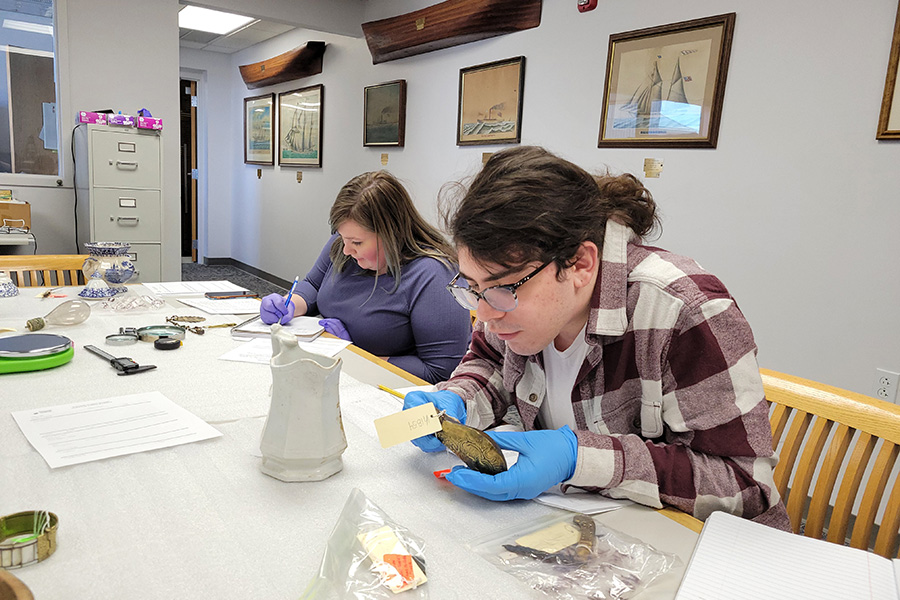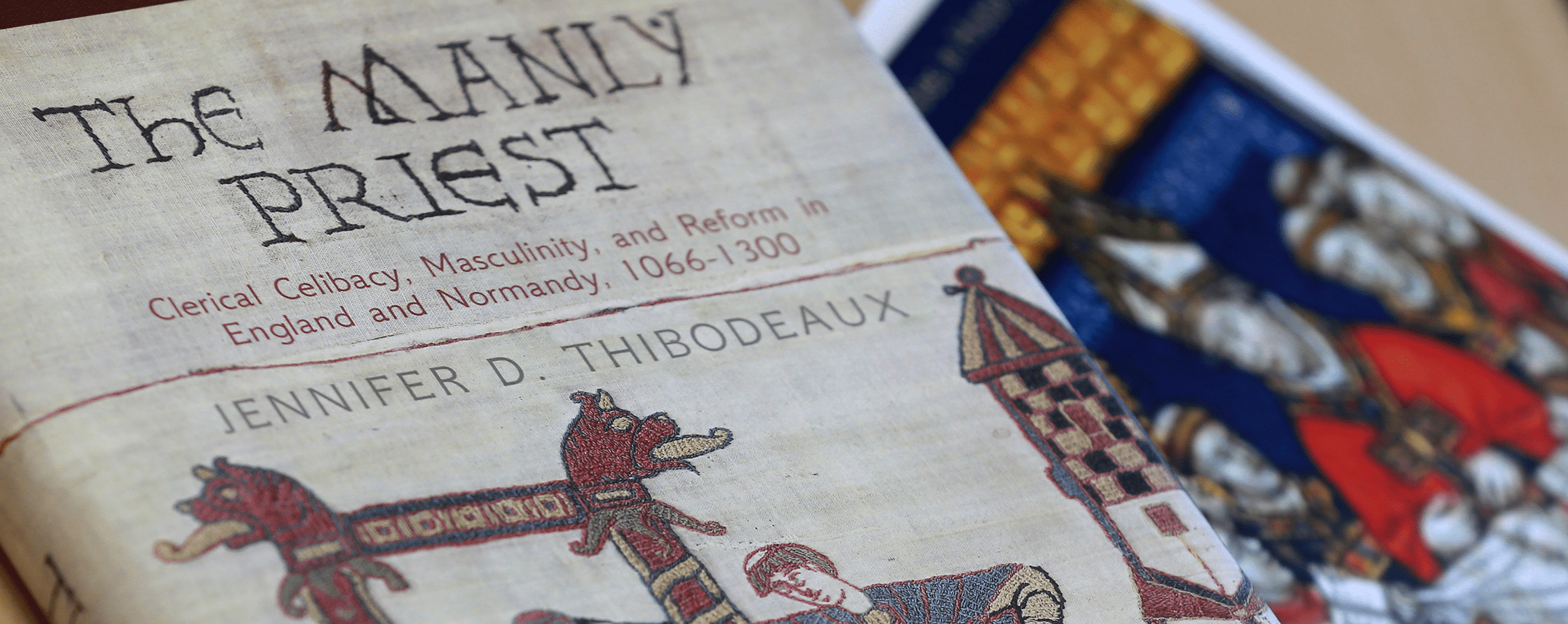DEPARTMENT OF HISTORY
Welcome to one of the most vibrant and intellectually enriching departments on campus! Whether you’re passionate about uncovering stories from the past, exploring how societies evolve, or understanding the complex forces that shape our world, the Department of History at UW-Whitewater offers diverse programs that empower students to pursue their academic interests and professional ambitions.
UW-Whitewater’s history program provides a dynamic and comprehensive educational experience. Our curriculum explores diverse regions, periods, and themes, from ancient civilizations and global empires to contemporary cultural movements and historical perspectives on social justice. Our expert faculty guide students through rigorous coursework, emphasizing critical thinking, research skills, and analytical writing—abilities highly valued in careers such as law, education, journalism, public history, business, and public service.
From introductory surveys to specialized seminars and independent research projects, our faculty mentor students at every stage of their academic journey, fostering intellectual curiosity and scholarly growth. Through community outreach, internships, public history projects, and collaborative research opportunities, we encourage students to apply historical perspectives to contemporary challenges, preparing them to engage thoughtfully with the world.
Contact us
Jennifer Thibodeaux
Department Chair and Professor
262-472-1116
Laurentide Hall 5223
Amy Lindenbaum
Department Assistant
262-472-1120
Laurentide Hall 5221
UW-Whitewater offers students a wide variety of scholarships, both through the university, individual colleges, and departments. The Department of History has a number of scholarships and awards geared specifically toward our students, including:
- The John T. Larimer Scholarship
- The Donald L. & Allene L. Graham Scholarships
- The Graham Study in Britain Award
- The Jack Filipiak Scholarship
- The Michael Kennedy Memorial Scholarship
- The Paul Schmunk Memorial Scholarship
- The Glenn D. Diedrich Scholarship
Should you run into issues, please contact Dr. Jennifer Thibodeaux via email at thibodej@uww.edu.
The Department of History supports a number of student clubs and organizations, including History Club, created to nurture members’ interest in history and expand their knowledge, and Phi Alpha Theta, an American honor society for undergraduate and graduate students and professors of history.
Public History majors at UWW complete a 3-credit internship at a local public history site. Interns are matched with a site based on their skills and interests in the field.
Recent internships have included:
- Milwaukee Public Museum
- Whitewater University Archives
- Hoard Historical Museum
- Whitewater Historical Society
- Jefferson County Historic Sites Preservation Committee
- Scottish Mining Museum (through the Wisconsin in Scotland Program).
Phi Alpha Theta (ΦΑΘ) is an American honor society for undergraduate and graduate students and professors of history. The society has over 350,000 members, with about 9,500 new members joining each year through 860 local chapters.
Phi Alpha Theta was established on March 17, 1921 at the University of Arkansas by Professor Nels Cleven. Cleven had become convinced in his time at the university that a fraternity of scholars (which would accept men or women) was important for the study of history. He invited students to a meeting to form the society (then called the "University Historical Society") on March 14, and the society was officially recognized on the 17th. In April, the decision was made for the society to be known by the Greek letters Phi Alpha Theta.
See more on the Phi Alpha Theta page.
Phi Alpha Theta was established on March 17, 1921 at the University of Arkansas by Professor Nels Cleven. Cleven had become convinced in his time at the university that a fraternity of scholars (which would accept men or women) was important for the study of history. He invited students to a meeting to form the society (then called the "University Historical Society") on March 14, and the society was officially recognized on the 17th. In April, the decision was made for the society to be known by the Greek letters Phi Alpha Theta.
Phi Alpha Theta is a professional society whose mission is to promote the study of history through the encouragement of research, good teaching, publication and the exchange of learning and ideas among historians. We seek to bring students and teachers together for intellectual and social exchanges, which promote and assist historical research and publication by our members in a variety of ways.
All members of the honor society are inducted through the local Phi Alpha Theta chapter at their respective college or university. A one-time initiation fee of $50 is required. Of that $50, $10 stays with the local chapter to fund events and activities. This fee includes a membership certificate and four issues of our journal, The Historian. Membership in Phi Alpha Theta is a lifetime membership. There are no additional annual dues or fees. Members who wish to continue supporting the honor society may do so by subscribing to The Historian and/or to our newsletter.
Undergraduate Students
Undergraduate students must complete a minimum of 12 semester hours (4 courses) in History, achieve a minimum GPA of 3.1 in History and a GPA of 3.0 or better overall. A maximum of 3 credit hours of online, transfer, or AP credits may be applied to the membership eligibility requirement. Membership is not limited to History majors.
Click here for a membership application in the Nu Beta Chapter of Phi Alpha Theta at UW-Whitewater. Please return that completed application, with the required fee to the Department of History, Laurentide Hall 5221, UW-Whitewater.
If you have any questions, please contact Dr. Karl Brown, UW-Whitewater Phi Alpha Theta (PAT) Faculty Advisor, at brownk@uww.edu.
Explore our academic programs


History
Major/Emphasis, Minor, Certificate (Undergraduate)Engage in the stories of those who came before us. A major or minor in History will develop your critical thinking skills and unlock a fundamental understanding of human society. Learn how the past shapes us and can help you grow and adapt to the changing career opportunities in the modern world.
History (Public History)
Major/EmphasisPublic history specifically offers training in skills to enhance a career in a museum, public history organization or other non-profit. You are required to do an internship, which will give you hands-on experience in the field.
What does my contribution directly support?
How much money can make an impact?
Donate now to support the Department of History at UW-Whitewater
If you're interested in starting a scholarship or making a pledge, please contact the UW-Whitewater Foundation, Inc at 262-472-1105 or through email at foundation@uww.edu.

